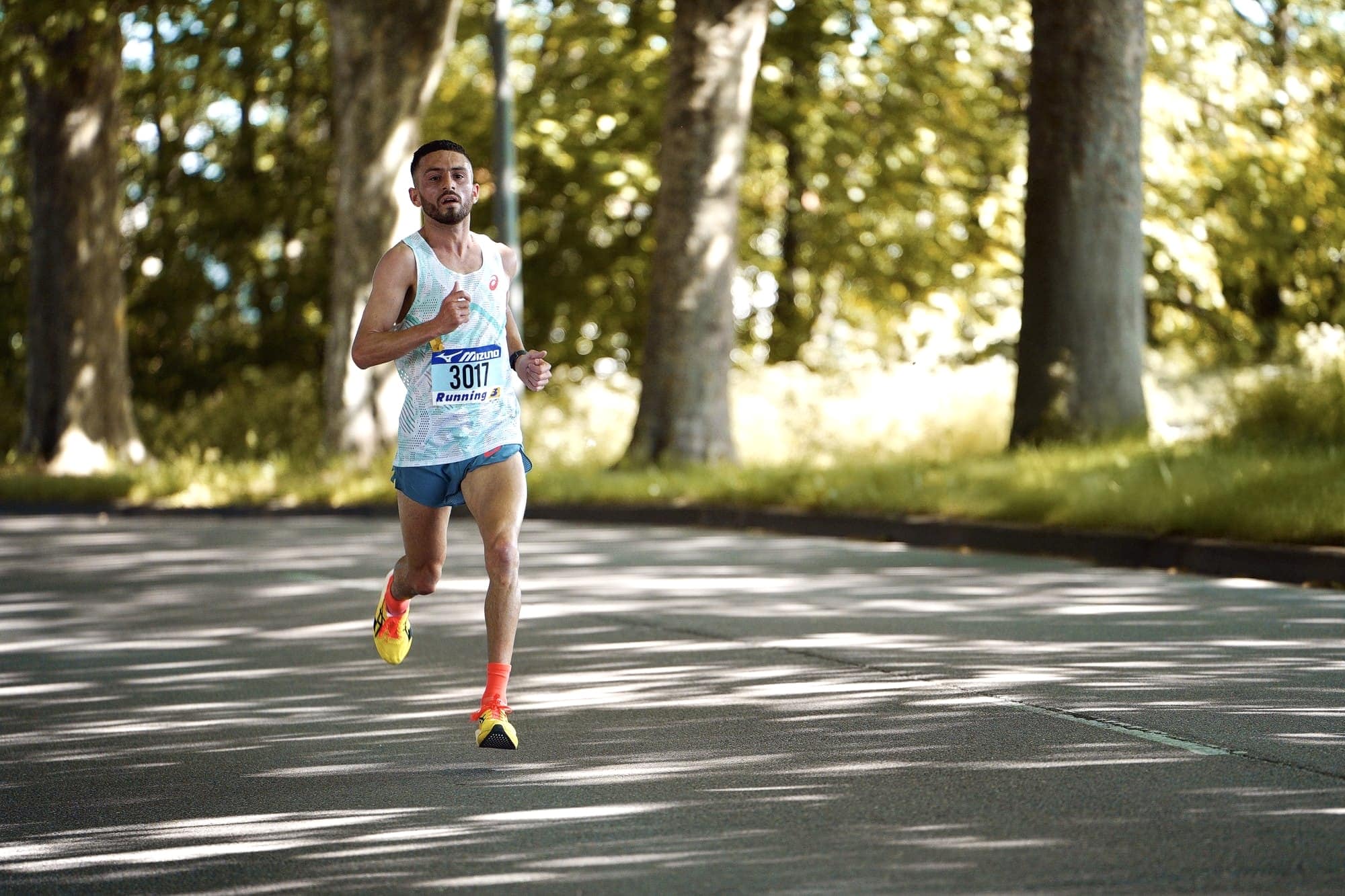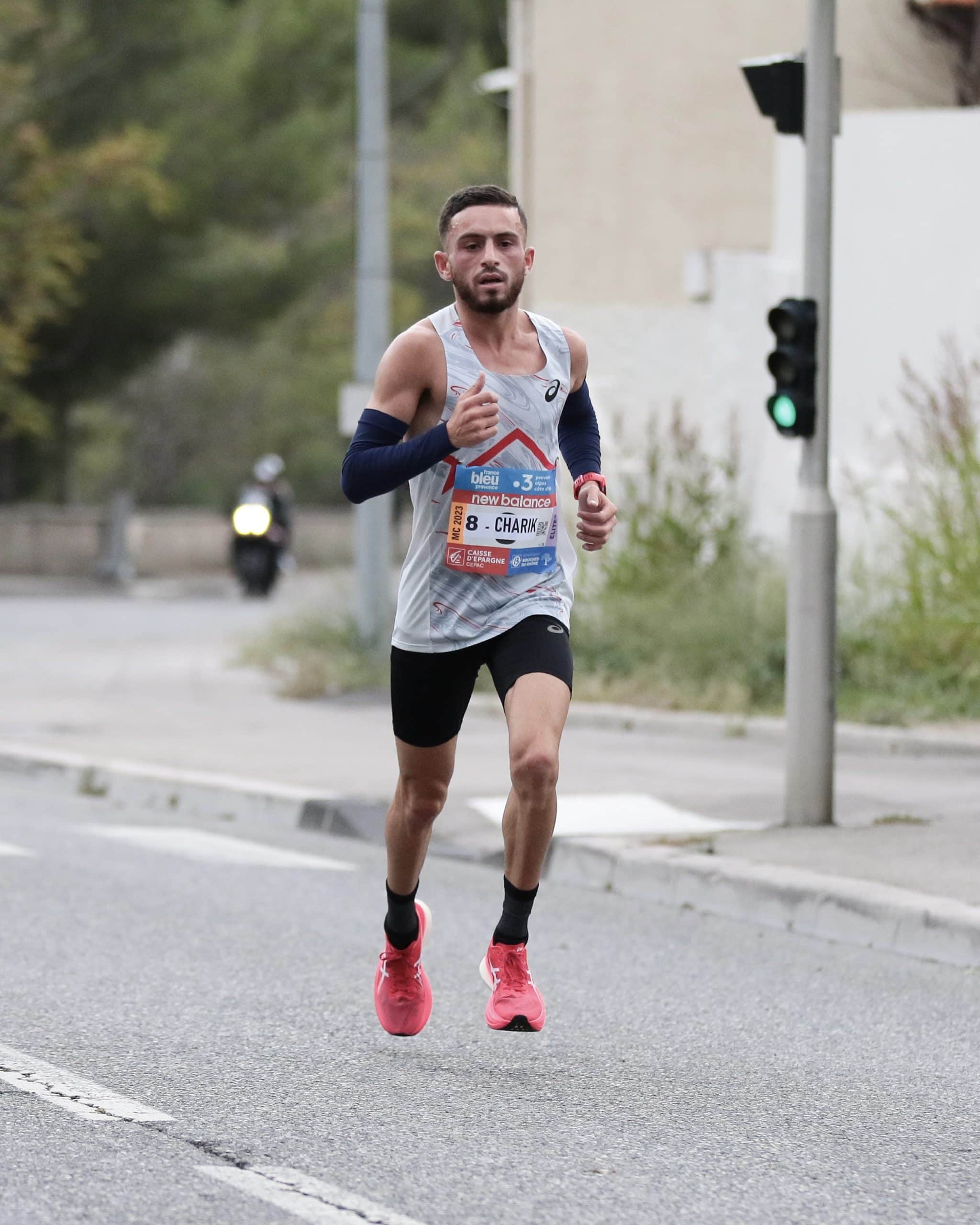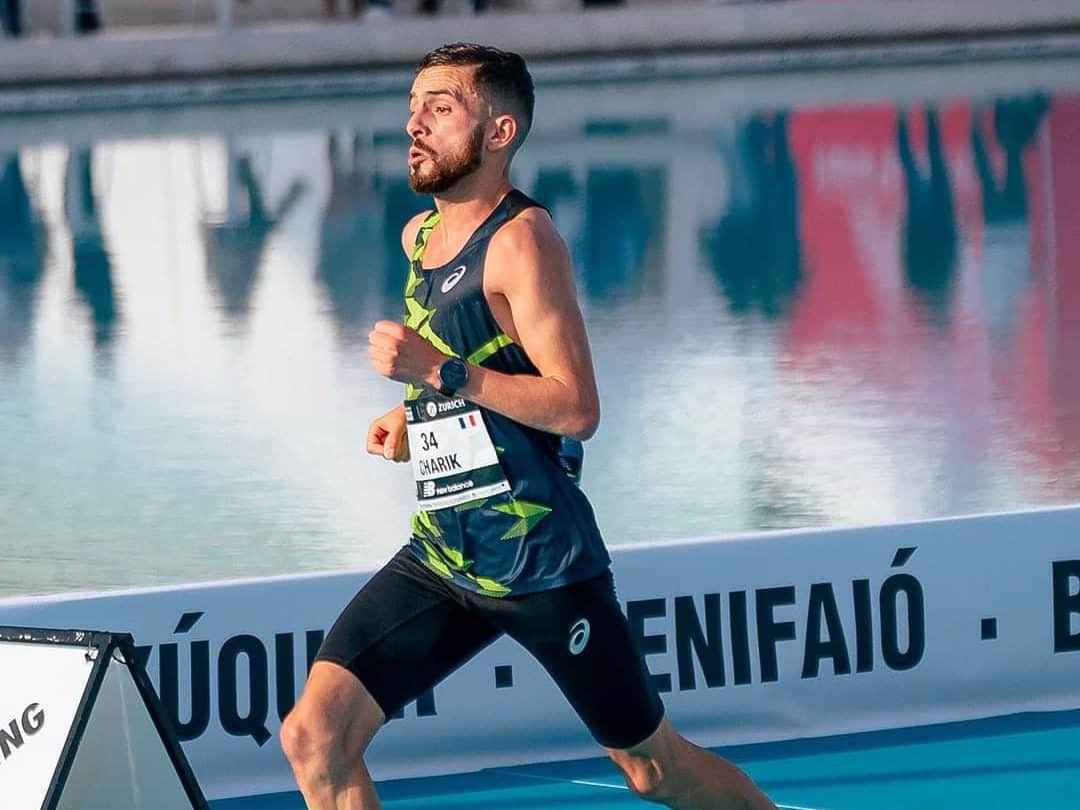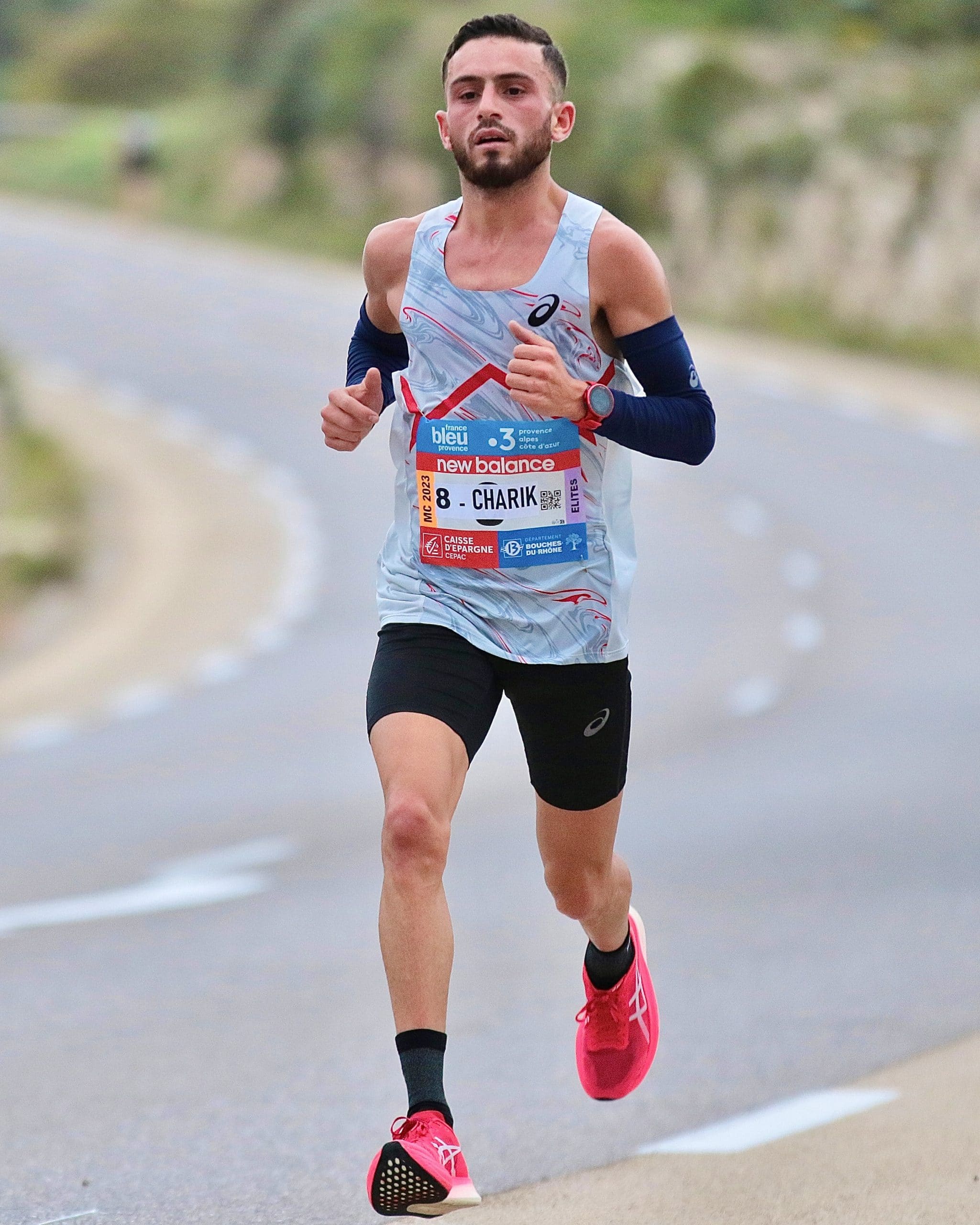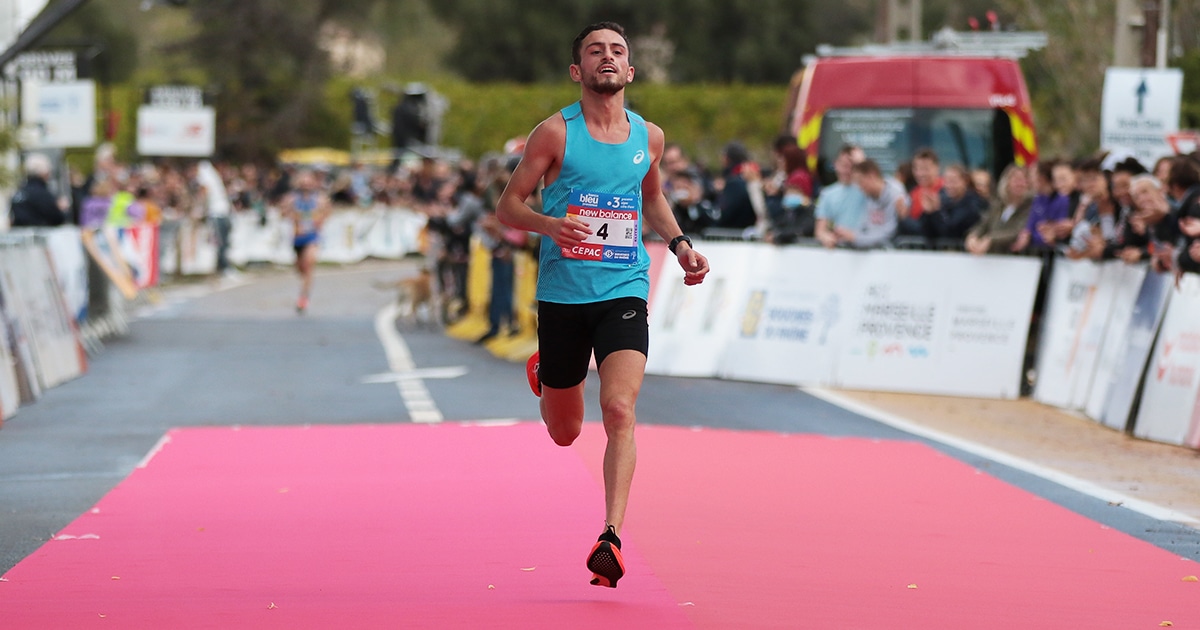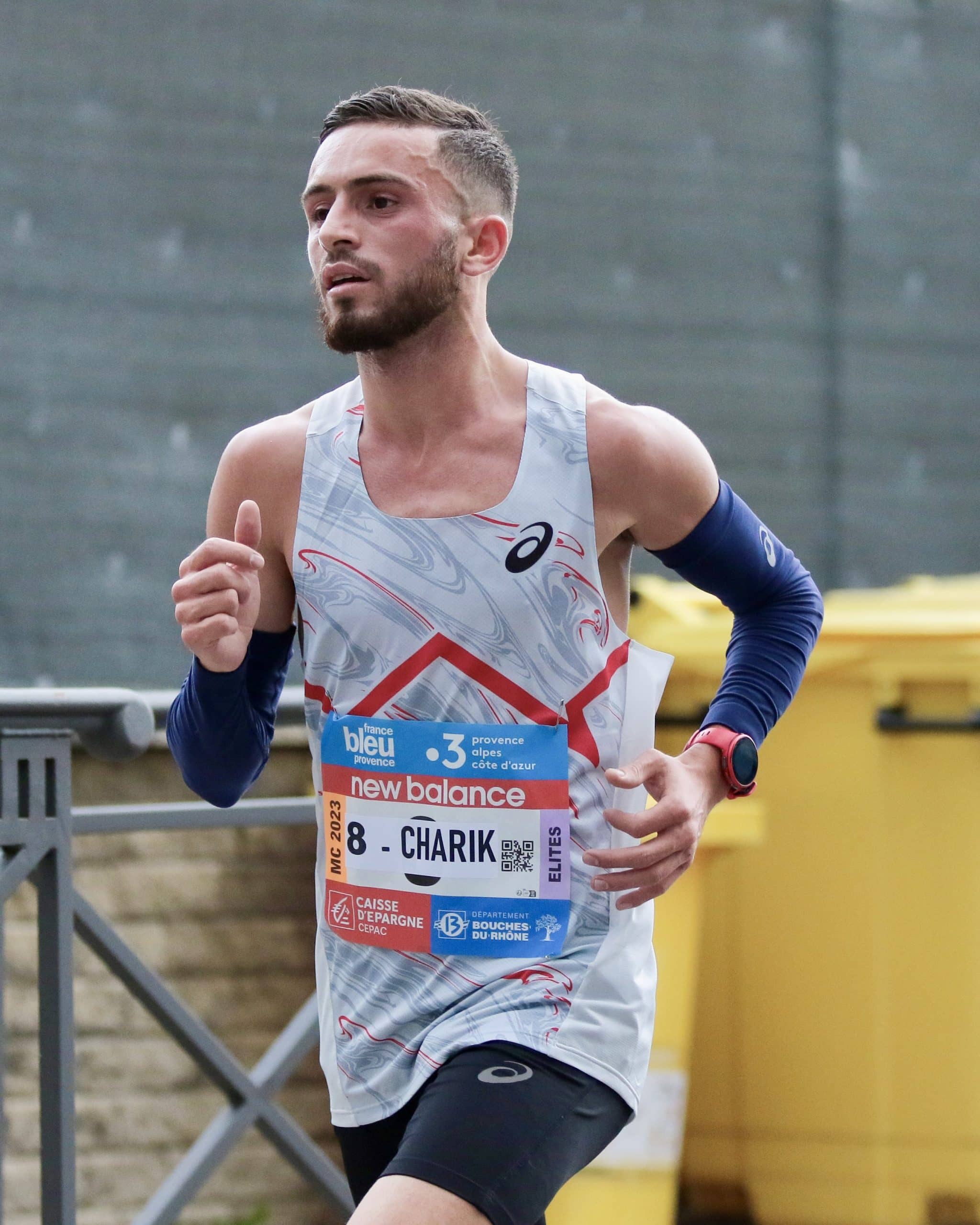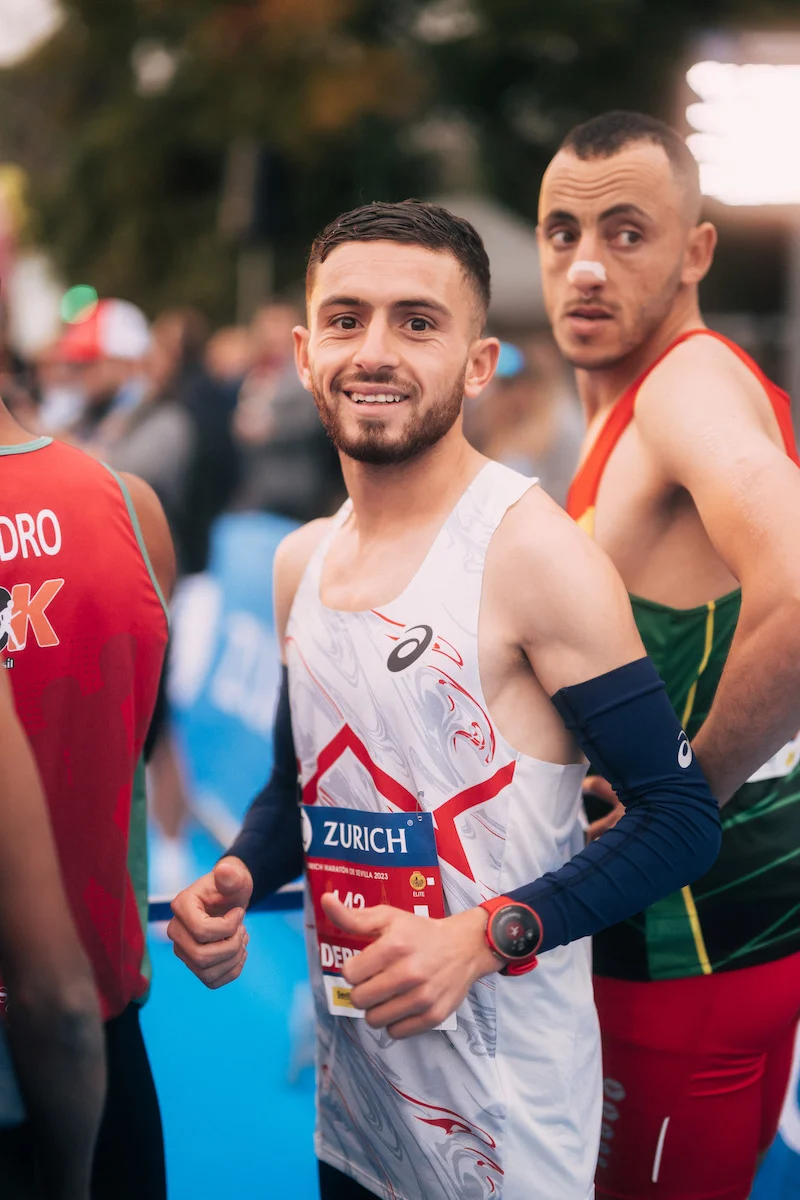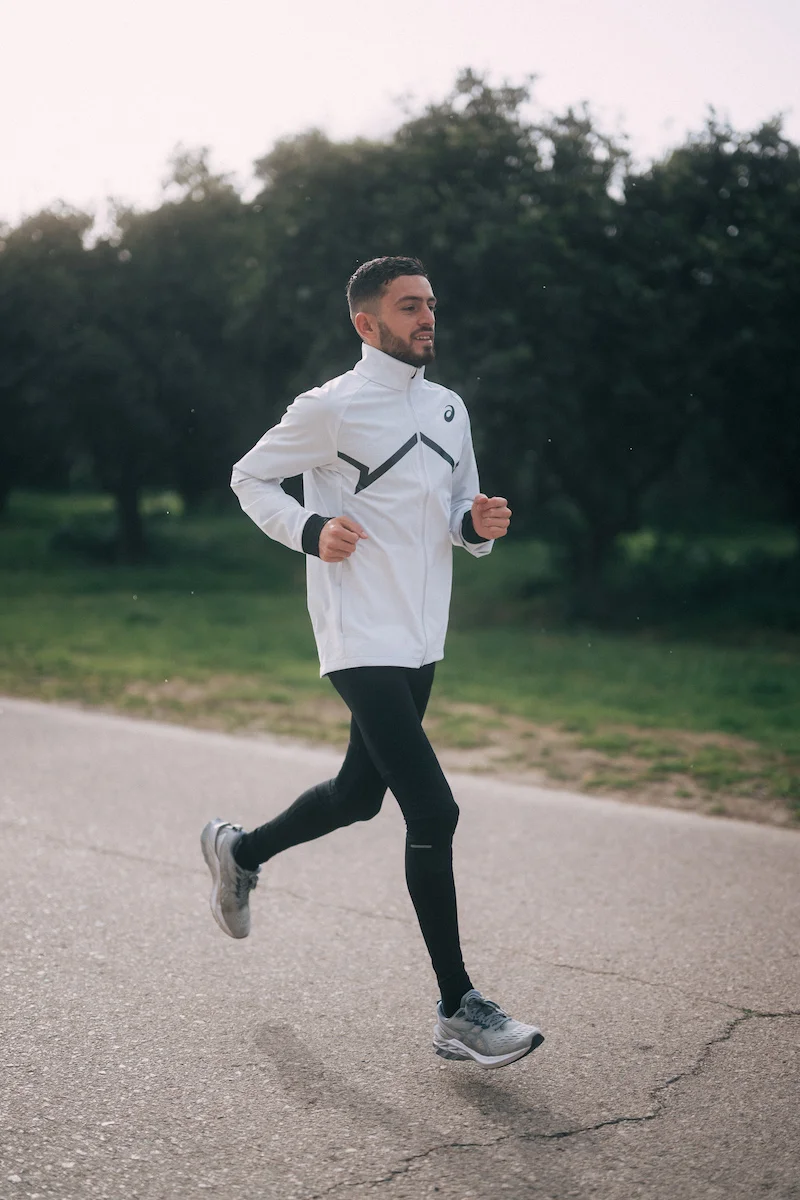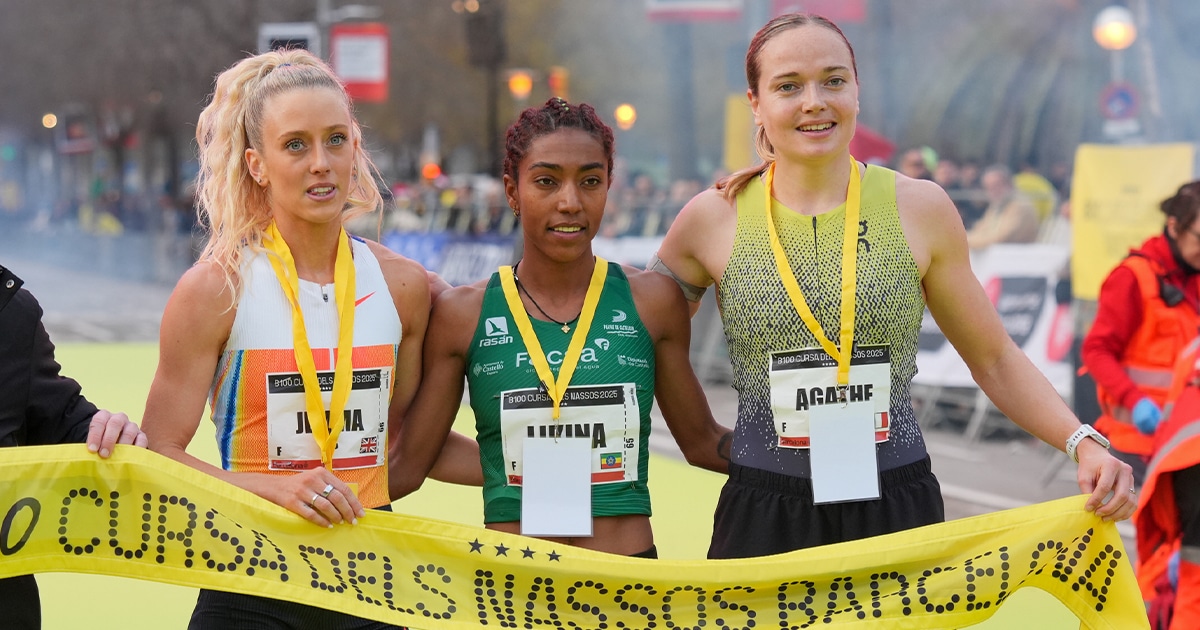Running & ramadan: a conversation with Abderrazak Charik
Just a few days ago, the Muslim community celebrated Eid al-Adha—one of the three most important Islamic holidays, along with Ramadan and Eid al-Fitr (which marks the end of the fasting month). It felt like the perfect time to sit down with Abderrazak Charik, a professional French-Algerian runner, to talk about how Ramadan affects life as an elite athlete.
Born in 1997 in Batna, Algeria, Abderrazak Charik—known as “Zak” to his friends—moved to France in 2004. As a child, it was through school cross-country races that he first discovered running. Step by step, race by race, he honed his skills and climbed the ranks. In 2024, he made a major breakthrough, finishing the Valencia Marathon in a stunning 2:07:20, propelling him into the world’s top 50. We’re grateful to Zak for taking the time to share his experience, both as a runner and as a practicing Muslim. Here’s what he had to say.
| Abderrazak, can you tell us a bit about yourself as a runner?
I started running in 2013, all because of a bet I made at school! At first, I got involved through cross-country races with my school, and little by little, I found my path. Funny enough, when someone first suggested I take up running seriously, I thought, “Running is fine, but why would I just run around aimlessly?” (laughs). But over time, people around me started noticing my potential, and it kept growing. Today, I’m proud to say I’m a professional athlete. It hasn’t been an easy road—I went through years of doubt and struggle, like many others. I’ll be honest: I didn’t do very well in school. It just didn’t motivate me. But at some point, I decided to give everything I had to succeed in running. Thanks in large part to ASICS, my main sponsor, I’ve been a full-time professional runner since 2021. I’m 100% focused on my sport now, always with the goal of improving. I moved up to the marathon quite early, at 24. My debut marathon was in Paris, in 2021, right after the COVID break—it was a 2:12. Then in December 2024, I ran 2:07:20 at the Valencia Marathon, which put me in the top 50 in the world. For the World Championship qualification, they take the top 100. So… back to work! (laughs)
| What are your main goals in the near future?
I’ve got short-term and long-term goals. First up: the World Championships in Tokyo this September, where I’ll be competing in the marathon. I’m planning a solid training block this summer to be at my best. Now that I’ve broken into the world’s top 50, I’m aiming even higher—my goal is to reach the top 20. That would be a huge source of pride for me. Looking further ahead, I’ve competed in just about every type of championship, so now I’ve got my sights set on the ultimate goal: the Olympics. I’ll do everything I can to be on that start line in Los Angeles in 2028.
Looking further ahead, I’ve competed in just about every type of championship, so now I’ve got my sights set on the ultimate goal: the Olympics. I’ll do everything I can to be on that start line in Los Angeles in 2028.
Abderrazak Charik
| Let’s talk about Ramadan. As an elite athlete, do you always observe the fast?
I grew up in a family where religion is very important. Fasting during Ramadan is something you start around age 12 or 13, when you’re old enough to reflect and understand the world around you. It’s not required for younger kids. Faith is just as important to me as sport. It keeps me grounded, respectful, and on the right path. That’s why I’ve always observed Ramadan—even while training. For me, faith comes before running. That’s non-negotiable. Ramadan is a powerful time that helps me reconnect with values that matter. It’s a deeply inspiring month, and it gives me strength for the other 11 months of the year.
| How do you balance your training and your goals during Ramadan?
During Ramadan, I don’t compete at all. If I do train, it’s very low intensity. Like I said, I put religion first. For one month, I can’t train twice a day—morning and afternoon—like I usually do. Hydration alone makes it incompatible. So I ease off. I go on light runs just to stay active. Running at 4 p.m. and then waiting until sunset to rehydrate? That’s too much strain on the body. Especially after waking up at 5 a.m. and fasting all day—it’s just not sustainable. It puts your health at risk. I’ve spoken with nutrition experts, and they say the 30-minute window after training is crucial for recovery. If you get enough protein in that half-hour, you recover up to 48 hours faster. During Ramadan, that’s simply not possible in the daytime. You might not injure yourself outright, but your body gets worn down—chronic fatigue, for example, or other lingering issues. That’s why I wait until night to train.
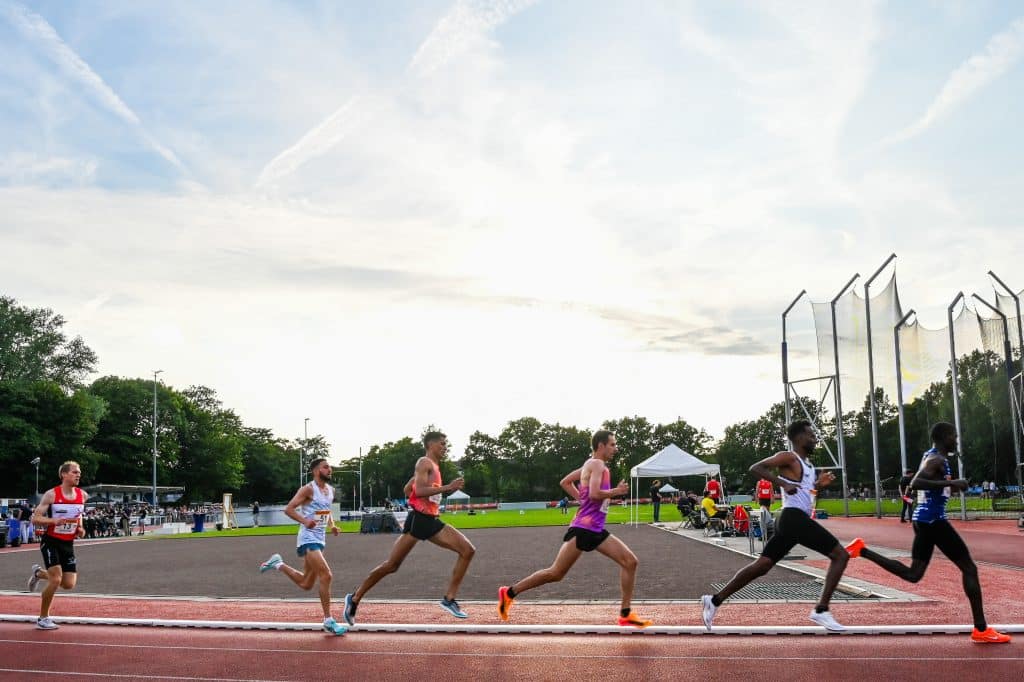
| So you run at night?
Yep! That’s when I get creative (laughs). If the fast breaks at 8 p.m., I’ll go out for a light jog around 7 to get my legs moving. Then I break the fast, spend some time with family, and head out again around 11 p.m. or midnight for a longer session—usually on the beach here in Dunkirk. I’m lucky to live in a city where the beach is lit at night, so I make the most of it (laughs). These two runs replace the double sessions I normally do: an easy one in the morning and a hard one in the afternoon. During Ramadan, I just dial things back. It’s really hard to hit peak form in that month—but it’s very easy to lose fitness. This setup helps me maintain a good base level so I can bounce back quickly when Ramadan ends.
| It sounds like you’ve found a good rhythm with it…
Absolutely. I’ve learned to balance the spiritual and the athletic. And when Ramadan ends, I bounce back fast—I don’t feel weak at all. In fact, I’d even say it gives me strength. It’s a month that brings so much energy and clarity. And that’s incredibly important to me.
